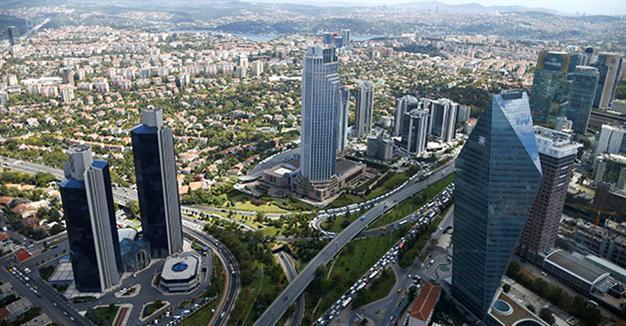Turkish economic growth slows in second quarter amid fall in investments, foreign demand
ANKARA

REUTERS photo
Turkish gross domestic product grew by 3.1 percent in the second quarter of 2016, lower than forecasts of around 3.4 percent, amid a decline in industrial investments and foreign demand, data from the Turkish Statistics Institute (TÜİK) showed on Sept. 9.Turkey’s GDP growth was 3.9 percent in the first half of the year.
Deputy Prime Minister Mehmet Şimşek predicted that the slowdown in economic activity will not last long, saying the failed July 15 coup attempt had weakened the general situation.
In a written statement on Sept. 9, Şimşek said the Turkish economy has grown mainly based on domestic demand since the last quarter of 2014 due to weakening global trade. The contribution of domestic demand to Turkey’s GDP growth was 5.2 percent in the second quarter of this year, while net foreign demand made a negative contribution of 2.1 percent.
Government consumption expenditure also rose by almost 16 percent, according to the TÜİK data.
“Despite the construction sector’s investments having a good effect on private sector investments, we saw a limited negative contribution from this side due to weakening machinery and equipment investments,” Şimşek noted.
He also suggested that the failed coup attempt had pushed down the industrial production and exports, but the general outlook started to improve again in August.
“In order to maintain healthier and higher growth rates in the upcoming period, it will be crucial for us to raise domestic savings and investments,” Şimşek added.
According to the TÜİK data, Turkey’s seasonally and calendar-adjusted GDP grew by 0.3 percent in the second quarter compared to the same period of 2015.
Finance Minister Naci Ağbal praised Turkey’s 3.9 percent growth over the first half of the year, particularly singling out domestic demand despite global economic problems and negative domestic developments.
“Newly-launched reforms and a number of incentives to boost innovative production, investments and exports will help to sustain economic growth,” Ağbal said.
Analysts believe that it will be almost impossible for Turkey to reach its year-end growth target of 4.5 percent, as escalating risks have a downward impact on economic activities mainly in the third quarter.
The April-June second quarter predates the July 15 failed coup, which is expected to have had a negative impact on economic performance.
















